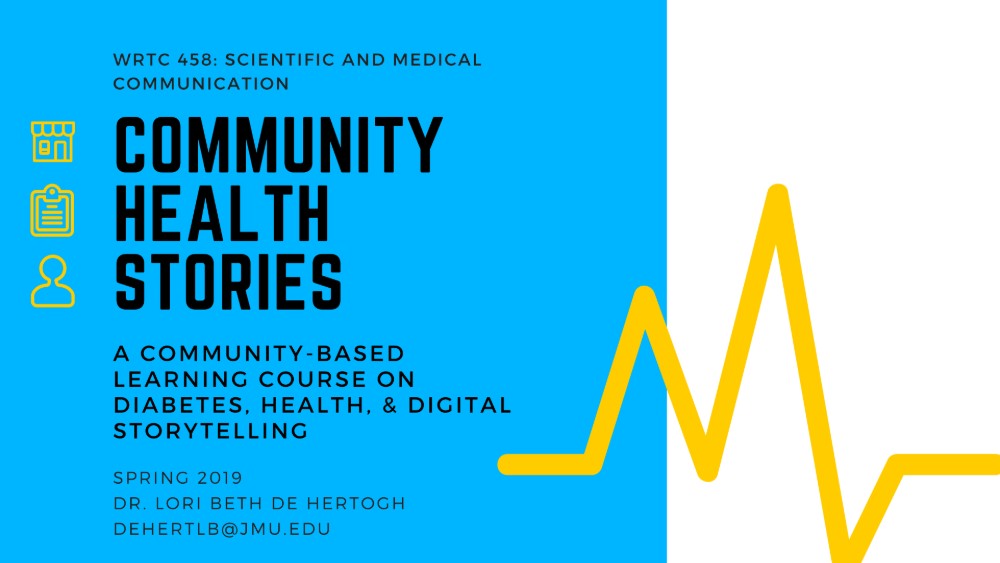Diabetes, Stigma, and Healthcare in the Shenandoah Valley
News
Students enrolled in WRTC 458: Scientific and Medical Communication this semester are getting hands-on experience researching type 2 diabetes to help improve healthcare in the Shenandoah Valley.
The course, taught by Dr. Lori Beth De Hertogh, focuses on how individuals with type 2 diabetes in the Valley communicate their condition to others. Such a focus aims to help healthcare providers, educators, and community outreach coordinators to develop policies and practices that are responsive to the perceptions of the disease and the stigma patients may experience.
Students work with a Certified Diabetes Educator (Julie Pierantoni, RN, MSN, Sentara Medical Center), Cynthia Martin (MA, Instructor, JMU) and individuals in the Harrisonburg community to complete a series of projects that rhetorically explore type 2 diabetes, specifically, and health communication and digital storytelling, more broadly.
Coursework consists of a digital health narrative, a diabetes report, and a digital story on community health. Students will also experience the Institutional Review Board (IRB) process firsthand by completing Human Subjects Research Training and by participating in a Sentara RMH Diabetes Advisory Council, both of which prepare them to serve as student-researchers for a diabetes research project through a partnership between JMU and Sentara RMH Medical Center. As part of the project, students will conduct interviews with individuals who live with type 2 diabetes to determine the extent to which they experience stigma and how that stigma might affect disease management.
Dr. De Hertogh notes that students enrolled in the class come from a wide variety of majors, but the one takeaway that applies to everyone is that “research is ethically complex and messy….” She hopes students learn over the course of the semester “how we make knowledge in science and medicine and how the treatments and practices that emerge from that knowledge are mediated by powerful rhetorical and cultural beliefs.” She challenges students to think about how those rhetorical processes of meaning-making in science and medicine directly impact our health and the health of others in our communities.
She also acknowledges that the class is a learning process for her. As she notes on her syllabus, “We will be doing lots of things this semester that are new for me and, probably, for you as well. What this means is that we will be learning together. I have years of experience teaching, researching, and writing and I will draw from that expertise to guide our class activities and discussions. But at the end of the day, we are going to ponder, create, and design stuff that will require our collective creativity and curiosity. In other words, this class is about grabbing ‘the world by the lapels’ (as Maya Angelou puts it) and trying new things that will challenge and inspire us as co-learners.”
